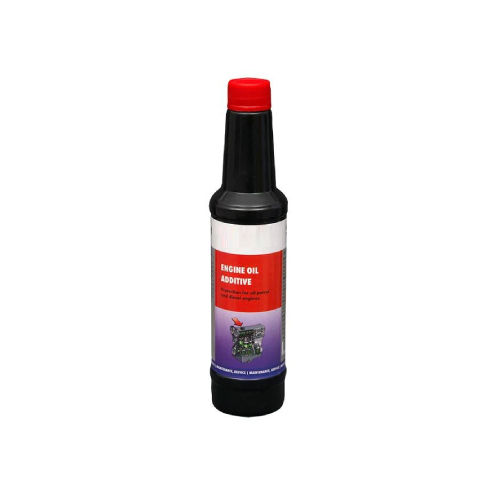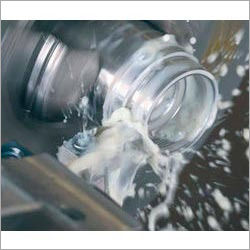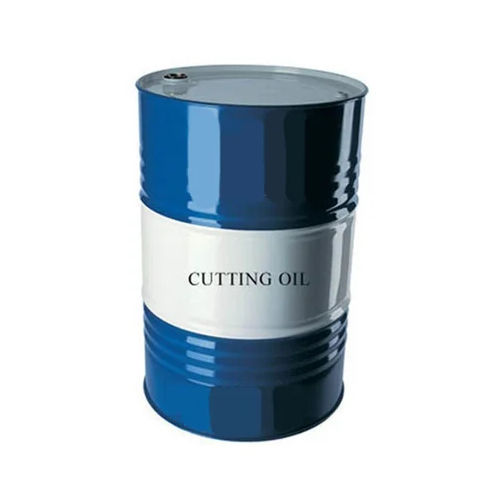
Engine Oil Additive
225 INR/Kilograms
Product Details:
- Use Lubricate moving parts in an engine
- Type Liquid
- Oil Type Engine Oil
- Color Brown
- Vehicle Type Auto Heavy Vehicle Cars
- Pack Type Bottle
- Click to view more
X
Engine Oil Additive Price And Quantity
- 225 INR/Kilograms
- 200 Kilograms
Engine Oil Additive Product Specifications
- Bottle
- Engine Oil
- Brown
- Auto Heavy Vehicle Cars
- Liquid
- Lubricate moving parts in an engine
Engine Oil Additive Trade Information
- 100 Kilograms Per Day
- 6 Days
Product Description
Engine Oil Additive is one of the widely demanded additive offered by us in the market. This is vital for the proper lubrication and prolonged use of motor oil in modern internal combustion engines. Some of the most important additives include those used for lubricity and viscosity, contaminant control, for the control of chemical breakdown, and for seal conditioning. This product can be availed from us at affordable prices.
# Applications of Engine Oil Additive:
1. Wear and Tear Protection: Engine oil additives containing anti-wear agents, such as zinc dialkyldithiophosphate (ZDDP) or molybdenum, are used to protect engine components, especially in older vehicles or those with high mileage. These additives create a protective film on metal surfaces, reducing friction and wear.
2. Fuel Efficiency Enhancement: Some additives, like friction modifiers, reduce friction between engine components, leading to improved fuel efficiency. This can be particularly beneficial in modern, high-performance engines.
3. Engine Cleaning: Detergents and dispersants in engine oil additives help prevent the buildup of sludge, varnish, and other deposits. This application keeps the engine clean and maintains optimal performance.
4. Oil Viscosity Maintenance: Viscosity index improvers are used to ensure the engine oil maintains its viscosity in a wide range of temperatures. This is essential for consistent lubrication in varying weather conditions.
5. Reducing Oil Consumption: Seal swell additives can help rejuvenate and condition engine seals and gaskets, reducing oil leaks and oil consumption.
6. Foam Control: Anti-foaming additives are used to prevent excessive foam formation in the oil, which can hinder proper lubrication and lead to engine damage.
7. Rust and Corrosion Prevention: Rust and corrosion inhibitors protect engine components from moisture and environmental damage, making them suitable for engines exposed to harsh conditions or marine applications.
8. Preventing Oxidation: Antioxidants are used to prevent the oil from breaking down and oxidizing, thus increasing the oil's lifespan and preventing the formation of sludge and varnish.
9. Cold-Weather Performance: Pour-point depressants are employed to improve the oil's flow characteristics at low temperatures, ensuring the engine starts and operates smoothly in cold weather.
10. High-Performance and Racing Engines: In racing and high-performance engines, specialized oil additives can be used to reduce friction, provide extreme protection against wear, and enhance overall engine performance.
11. Maintenance of Older Engines: Engine oil additives can be used in older vehicles with engine wear or oil consumption issues to extend the life of the engine and improve performance.
12. Heavy-Duty and Commercial Vehicles: Engine oil additives are used in heavy-duty trucks and industrial equipment to enhance durability, reduce downtime, and maintain optimal performance under severe operating conditions.
# FAQ:
1. What is an engine oil additive?
Ans: An engine oil additive is a chemical product that can be mixed with engine oil to improve its performance and protect the engine. These additives come in various formulations designed for specific purposes.
2. Are engine oil additives necessary?
Ans: In most cases, modern motor oils already contain additives that meet the specific needs of engines. However, some older or high-performance engines may benefit from additional additives. It's essential to follow the manufacturer's recommendations.
3. What problems can engine oil additives address?
Ans: Engine oil additives can address issues like wear and tear, friction, engine cleanliness, fuel efficiency, cold-weather performance, and more, depending on the type of additive used.
4. Can I use engine oil additives in any vehicle?
Ans: It's important to check the manufacturer's recommendations and your vehicle's warranty before using additives. Some vehicles may not benefit from additional additives, and their use could void warranties.
5. How do I use engine oil additives?
Ans: Typically, you add the specified amount of the additive directly to the engine oil. Follow the manufacturer's instructions for the correct dosage, and it's usually added during an oil change.
6. Can engine oil additives harm my engine?
Ans: Using the wrong type or excessive amounts of additives can potentially harm your engine. Always follow the manufacturer's guidelines and avoid overuse.
7. Are there different types of engine oil additives?
Ans: Yes, there are various types of engine oil additives, including anti-wear additives, detergents, viscosity index improvers, anti-foaming agents, friction modifiers, and more, each designed for specific purposes.
8. Can engine oil additives improve fuel efficiency?
Ans: Yes, some additives, like friction modifiers, can reduce friction within the engine and improve fuel efficiency. However, the extent of improvement may vary.
9. Do engine oil additives work in extreme temperatures?
Ans: Some additives, such as pour-point depressants and viscosity index improvers, are designed to improve the oil's performance in extreme temperatures, making them suitable for cold or hot weather conditions.
10. Are there additives specifically for high-performance or racing engines?
Ans: Yes, there are specialized additives designed for high-performance and racing engines. These additives provide extreme protection against wear and reduce friction for enhanced engine performance.
11. Can engine oil additives fix engine problems, such as oil leaks or knocking sounds?
Ans: While some additives may reduce oil consumption and rejuvenate seals, they are not a guaranteed solution for all engine problems. Serious engine issues may require mechanical repairs.
12. Can I mix different types of additives in my engine oil?
Ans: It's generally not recommended to mix different types of additives, as they may interact in unpredictable ways. Stick to a single additive or consult with a professional if you believe multiple additives are necessary.
Tell us about your requirement

Price:
Quantity
Select Unit
- 50
- 100
- 200
- 250
- 500
- 1000+
Additional detail
Mobile number
Email







